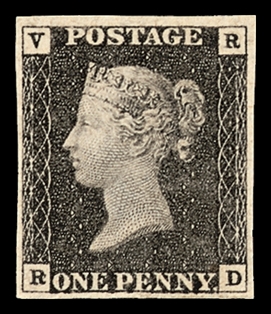Why collect or invest in stamps ?
Beyond its emotional and intellectual value, we believe stamp collecting is a fascinating and rewarding hobby that offers unique benefits. Stamp collection is not only a source of joy and fascination but also a tangible asset that can appreciate over time. Stamp collecting has proven to be a lucrative investment opportunity, with attractive returns, low volatility, and a low correlation with equities. This makes it an excellent option for diversifying an investment portfolio and reducing risk.
Let’s explore the benefits of stamp collecting:
FINANCIAL
- Low/negative correlation with equities: Stamp collecting has a low correlation with the performance of the stock market, providing a hedge against market fluctuations.
- Low cost of maintenance: Stamp collecting requires minimal ongoing expenses, making it a cost-effective investment.
- Hedging possibilities: Stamp collecting can serve as a hedge against inflation and economic uncertainties.
- Global market: Stamp collecting offers access to a global market, allowing collectors to explore and acquire stamps from different countries and cultures.
- High returns: Stamp collecting has the potential for high returns, especially for rare and valuable stamps.
- Portability: Stamp collections are portable and can be easily transported or stored.
- Low volatility: Stamp values tend to exhibit lower volatility compared to other investment assets, providing stability to an investment portfolio.
- Tax advantages: Stamp collections can grow tax-free, providing potential tax benefits for collectors.
- Diversification possibilities: Stamp collecting allows diversification within an investment portfolio, reducing overall risk.
- Preservation of value: While stamp values can fluctuate, stamps generally do not depreciate over time and can retain or increase their value.
CULTURAL
- Historical and cultural significance: Stamp collecting contributes to preserving historical and cultural artifacts, reflecting the heritage of different nations.
- Aesthetic and intellectual qualities: Stamps are miniature works of art, showcasing unique designs, themes, and craftsmanship. Collecting stamps enhances aesthetic appreciation and encourages intellectual exploration.
- Preservation of national identity: Stamps often feature national symbols, historical events, and prominent figures, promoting a sense of individual and national identity.
- Legacy and heritage: Stamp collections can be passed down through generations, creating a lasting legacy and connection to one’s family history.
- Educational value: Stamp collecting offers educational opportunities, providing insights into geography, history, and culture.
- Enriches quality of life: Stamp collecting brings joy, fulfillment, and a sense of accomplishment to collectors, enhancing their overall quality of life.
PEACE OF MIND
- Asset protection: Stamp collections can serve as a means of asset protection, offering a level of security against legal disputes or financial uncertainties.
HEDGE AGAINST ALL ODDS
- Inherent value: Stamp collecting has a proven track record of appreciation, remaining uncorrelated to financial markets and macroeconomic effects. Stamps hold their value even during financial crises and can act as a hedge against uncertain times.
CAPITAL PRESERVATION
- Stability during economic fluctuations: In times of economic instability, stamp collecting provides a stable investment option, preserving capital and safeguarding against the volatility of other asset classes.
MINIMAL EXPENSE
- Affordable maintenance: Stamp collecting incurs minimal expenses related to storage, maintenance, and insurance. It is a cost-effective investment option.
POSITIVE RETURNS
- Long-term appreciation: Stamp values have historically appreciated over time, with certain stamps experiencing significant growth in value. Stamp collecting offers the potential for positive returns.
- Coveted cultural objects: Stamps are highly sought after by collectors worldwide, making them valuable cultural objects that attract a growing number of enthusiasts.
While specific data on stamp appreciation may vary, stamp collecting has demonstrated its potential as a rewarding investment and a source of cultural enrichment.






